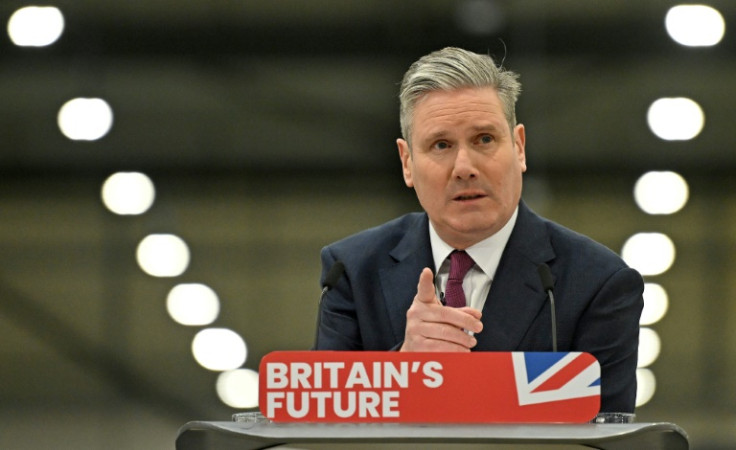
Labour has dropped several of its most radical reforms, in an attempt to 'bombproof' its election manifesto from Tory attacks.
The opposition party, currently holding a substantial polling advantage, backed out of its £28bn a year commitment to green investment last week.
It then emerged that despite Keir Starmer's previous promises to completely abolish the Lords in a first term, Labour is now expected to commit only to limited changes, such as the abolition of the remaining 91 hereditary peers.
As well as this, Labour will not seek to legislate on the creation of a new national care service in its first king's speech.
Instead, it will focus on a fair pay agreement for care workers as well as issues of recruitment and retention, as part of a wider workers' rights bill.
Its plans for a complete overhaul of social care will, however, be presented as a longer-term mission taking at least 10 years and two parliaments to complete.
The opposition's cautious approach – which will frustrate some MPs and party members also reflects the difficult economic situation they are likely to inherit in government.
But shadow ministers are also determined to offer as small a target as possible to the Tories on issues such as social care, which has transformed election campaigns in the past.
In 2010, Labour's care plans were branded a "death tax" by the Conservatives, and hit the party's vote badly, while in 2017 Theresa May's campaign suffered irreparable damage amid accusations she was planning a "dementia tax".
Shadow cabinet ministers have been given until 8 February to make policy submissions for the manifesto, before a committee of shadow ministers and officials will then assess which commitments will require legislation in a king's speech that will be delivered within weeks of entering office.
The party intends to have both documents ready by mid-March, in case Rishi Sunak calls an early spring poll.
Sunak has said he plans to hold an election later in the year, widely expected to be in October or November.
A YouGov survey of 14,000 respondents forecasts that the Tories will hold on to just 169 seats, while Labour will claim 385.
This would deliver Sir Keir Starmer's party a majority of 120 seats.
With its green prosperity plan now being talked down, Labour's new "flagship" policy is increasingly seen as its new deal for working people, which involves handing workers new rights from their first day of employment, as well as the abolition of zero-hours contracts.
The deal, fiercely guarded by deputy leader Angela Rayner, also includes a ban on "firing and rehiring".
Another bill that is likely to be prioritised will be a "fiscal lock" that will force the government to submit all tax and spending plans to the Office for Budget Responsibility for its judgment before pressing ahead.
The aim is to contrast Labour's commitment to fiscal discipline with the disastrous decision-making of the Liz Truss government, which caused near panic in financial markets.
Elsewhere, Labour's pledge to roll out breakfast clubs to every primary school in England, funded by the abolition of non-dom tax status, remains prominent in the manifesto.
There are also hopes internally that a big childcare pledge could form part of Labour's programme in the first term, with the party keen on expanding the number of nurseries attached to primary schools to tackle a huge shortage of places and staff.
The Labour leader announced that his party aims to tackle child health head-on, with an action plan including supervised tooth-brushing for three to five-year-olds in schools.
Starmer claims children are "probably the biggest casualty" of the Tories' sticking-plaster approach to politics over the past 14 years, adding that, if the government were a parent, they could be charged with neglect.







